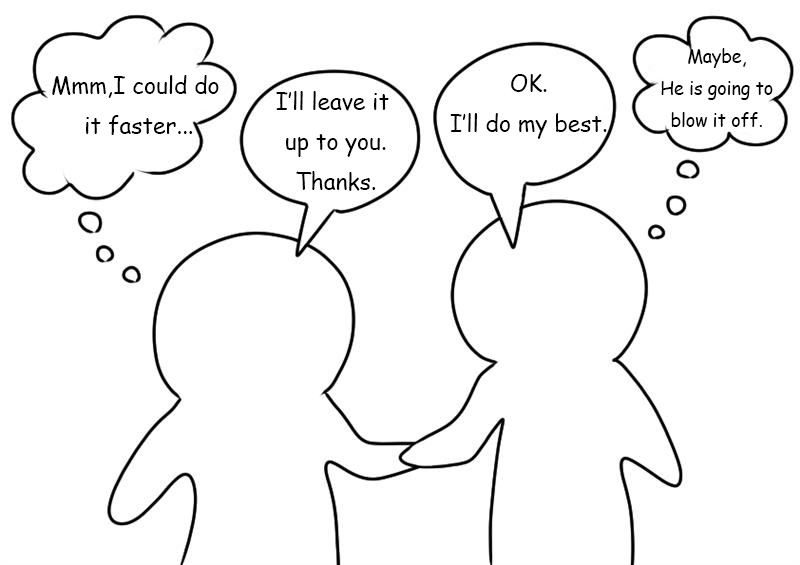Copyright GK Dynamics Inc., All Rights Reserved.

Copyright GK Dynamics Inc., All Rights Reserved.


Suppose someone (Mr. A) entrusts something to someone else (Mr. B). Mr. A is confident about his decision, but Mr. B may assume Mr. A is trying to blow off work. Things like this happen because the meaning of the word “entrust” fails to be shared between them.
People tend to show different understandings of “entrusting.” But as far as people working for the same organization are concerned, here’s my understanding of the term.
When I entrust something to someone in my team, I would expect him or her to take on a challenge and assume risks involved rather than simply placing my trust in their abilities. In such cases, I am the one who bears the ultimate responsibility for what they do. My intention is for them to understand the meanings of their existence. I think this way of thinking is essential to an organization to promote metabolism. If the process of entrusting is hampered by managers who prefer to do everything by themselves because that’s less time-consuming and more reassuring, the organization can be doomed to collapse as it refuses to take risks. So, it’s important for the organization to provide an environment where its members can understand the meanings of their existence through their own job experiences.
In my opinion, it’s not a good idea to impose a strict chain of command on team members or unreasonably ask them to report on their work progress because these things can result in eroding their thinking abilities and motivations. The worst thing is interfering in everything they do even after entrusting them with work assignments.
What I have explained here may sound like a pretext for skipping my own duty. It may work in my favor when things get tough.
Okay, I’m going to slack off.
Isao Sakata
Product Design Dept.
Senior Director
